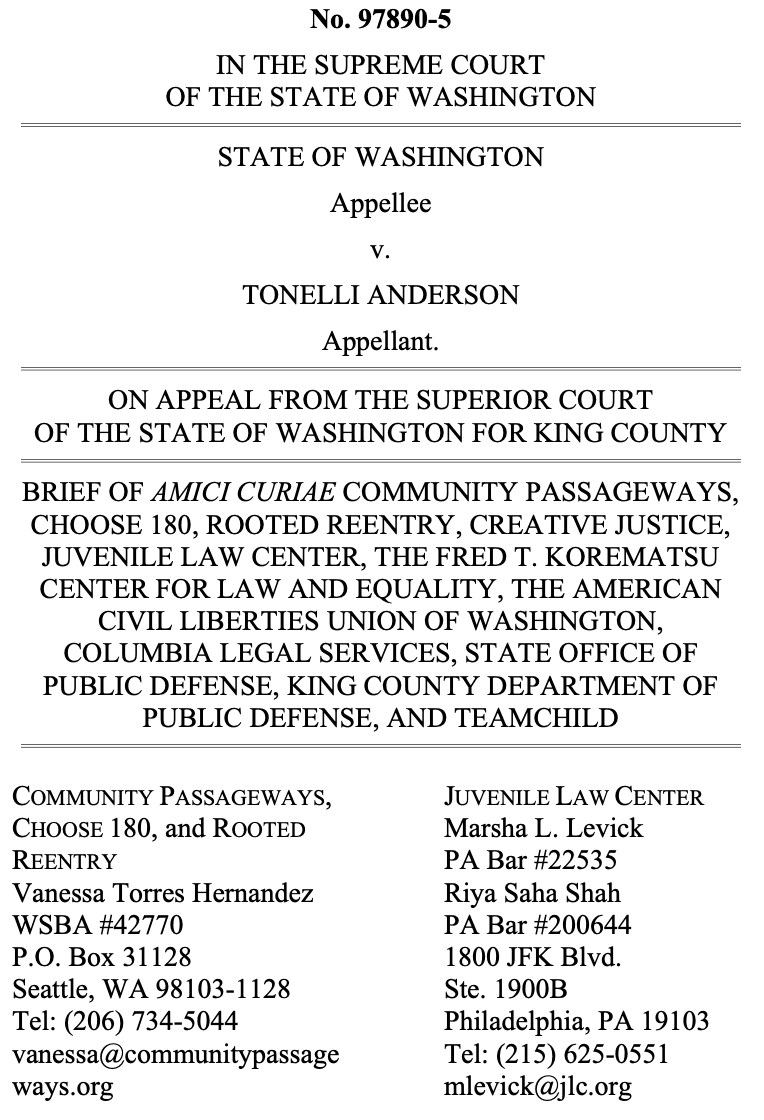
Summary of Argument
It is well established “that imposition of a State’s most severe penalties on juvenile offenders cannot proceed as though they were not children.” Miller v. Alabama, 567 U.S. 460, 474, 132 S. Ct. 2455, 183 L. Ed. 2d 407 (2012); see also Graham v. Florida, 560 U.S. 48, 130 S. Ct. 2011, 176 L. Ed. 2d 825 (2010), Roper v. Simmons, 543 U.S. 551, 125 S. Ct. 1183, 161 L. Ed. 2d 1 (2005). Because the decision to impose a life sentence on a child has “extremely high stakes” and the exercise of judicial discretion “produces the unacceptable risk that children undeserving of a life without parole sentence will receive one,” the Washington Supreme Court has held that life without parole sentences for young people are categorically unconstitutional, and that the constitution also does not allow for sentencing children to terms that amount to de facto life sentences. State v. Bassett, 192 Wn.2d 67, 90, 428 P.3d 343 (2018); State v. Haag, 198 Wn.2d 309, 329-30, 495 P.3d 241 (2021). In resentencing an individual whose offenses occurred as a child “a trial court must place greater emphasis on mitigation factors than on retributive factors.” Haag, 198 Wn.2d at 317; see also RCW 10.95.030. In this case, the sentence imposed on Tonelli failed to account for the impact of racial bias and condemns him to a life behind bars without any legitimate penological purpose. The case should be remanded for resentencing.